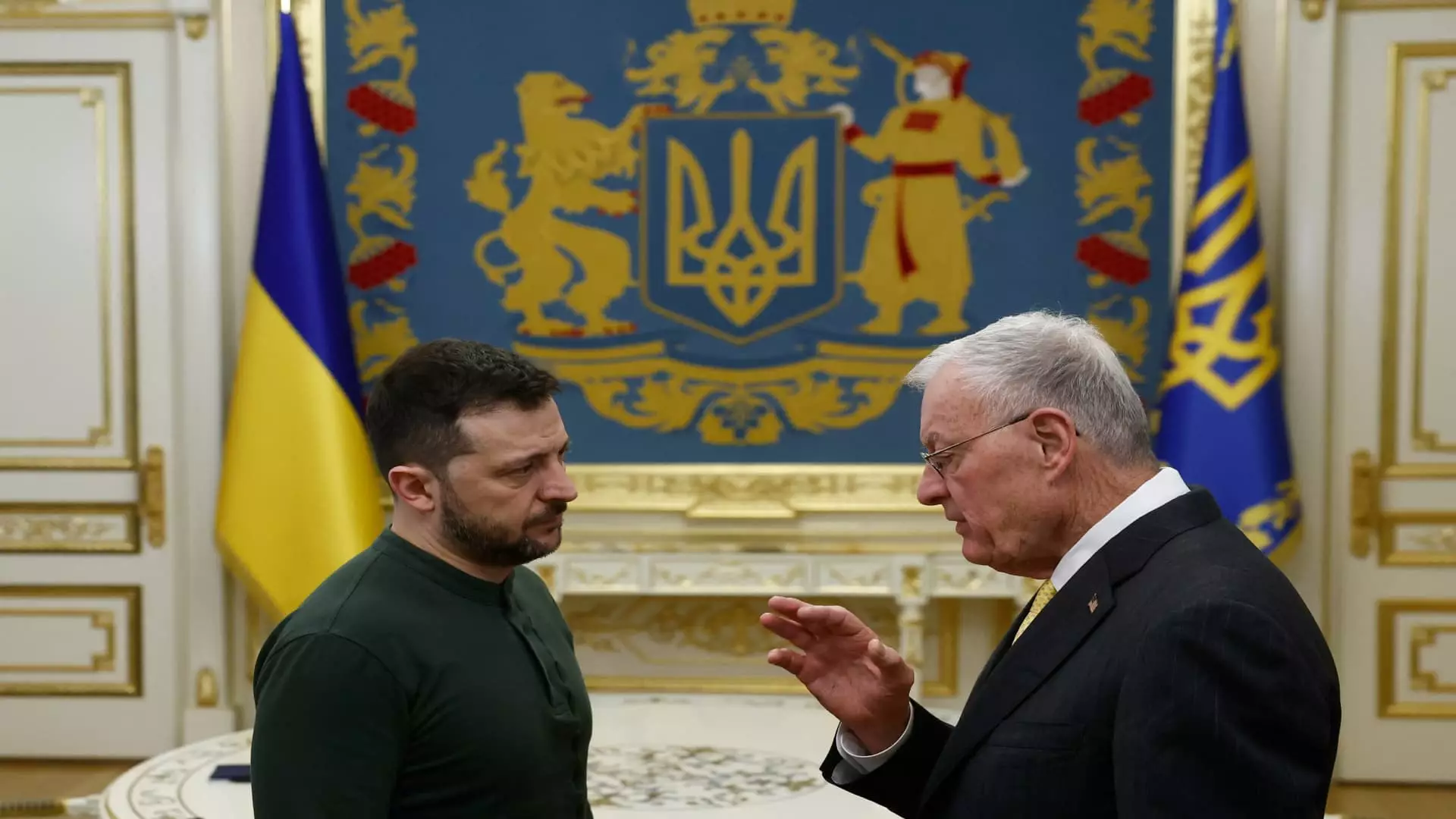As the conflict in Ukraine drags on, the strategic partnerships and negotiations surrounding the war have become increasingly complex. Central to these discussions is the critical role of technology and resources, particularly in relation to Elon Musk’s Starlink satellite internet system. Recent revelations indicate that U.S. negotiators are pushing Ukraine for access to its essential minerals—crucial not only for the domestic economy but also for global technological supply chains, leading to a precarious bargaining position for Ukraine.
Starlink has emerged as a lifeline for Ukraine, providing essential internet connectivity in a war-torn landscape where traditional infrastructure has been devastated. The system has been heralded as a game-changer for the Ukrainian military, facilitating drone operations and enabling communications that are vital for coordinating defense strategies against ongoing Russian aggression. According to insiders, this reliance on Starlink has led Ukrainian officials to view the satellite internet service as their “North Star,” an indispensable asset for maintaining operational effectiveness in the battlefield.
Discussions between U.S. officials and Ukrainian President Volodymyr Zelenskiy have reportedly centered around the potential repercussions if Ukraine does not concede to demands regarding its mineral resources. Noteworthy is the U.S. Treasury’s insistence that access to Starlink could be jeopardized if a formal arrangement regarding Ukraine’s minerals is not established. This raises serious ethical questions about leveraging technological support against a backdrop of wartime negotiations, especially as Ukraine continues to fend off a hostile invasion.
The complexity of U.S.-Ukraine negotiations becomes evident when examining the historical context of these discussions. In recent months, Zelenskiy has been resistant to several proposals from former President Donald Trump’s administration aimed at appropriating a substantial portion of Ukraine’s mineral wealth, purportedly to offset military aid provided by Washington. The insistence on a $500 billion figure as a means of repayment from Ukraine has left many observers questioning the viability and morality of such demands, particularly in the context of ongoing Russian aggression and the humanitarian crisis it has incited.
Furthermore, Ukrainian officials have voiced concerns regarding the adequacy of security guarantees from the U.S. in exchange for its vital resources. This dichotomy between what the U.S. demands and what Ukraine is willing to concede underscores a widening rift that could potentially jeopardize not only U.S.-Ukrainian relations but also the broader international response to the conflict.
The stakes extend beyond the immediate conflict as Ukraine’s critical minerals—such as titanium, lithium, and uranium—are indispensable for various high-tech industries, including electric vehicle production and national defense systems. The growing global demand for rare earth elements has made these resources a focal point not only for Ukraine’s economic recovery but also for international strategic alliances. The ongoing conversations about opening these resources for investment highlight the intersection of military necessity and economic opportunity.
U.S. lawmakers’ divergent views on Ukraine’s situation further complicate the landscape. While some advocate for a swift end to the conflict, viewing it through a lens of transactional politics, others recognize the immense risk involved in tying crucial military support to mineral exports. Experts within the defense community have warned that losing Starlink would shift the balance of power, diminishing Ukraine’s operational capabilities at a critical juncture in the war.
The ongoing negotiations ultimately spotlight the need for transparency and empathy in international relations, especially when lives are at stake. Ukrainian resilience amid the crisis should foster a cooperative spirit rather than a coercive negotiation strategy. As the situation continues to evolve, the international community must balance its strategic interests with humanitarian imperatives, ensuring that support for Ukraine is seen as a commitment to democracy and freedom rather than mere political expediency.
The fate of Starlink and the negotiations over Ukraine’s mineral resources illuminate a broader narrative about the interplay between technology, geopolitics, and military strategy. The decisions made in this moment will resonate not just across Ukraine but also through global corridors as nations grapple with the challenges posed by resource competition and technological reliance. The outcome of these negotiations will be pivotal, not only for Ukraine’s future but also for the landscape of international relations in the context of a protracted and evolving conflict.



Leave a Reply